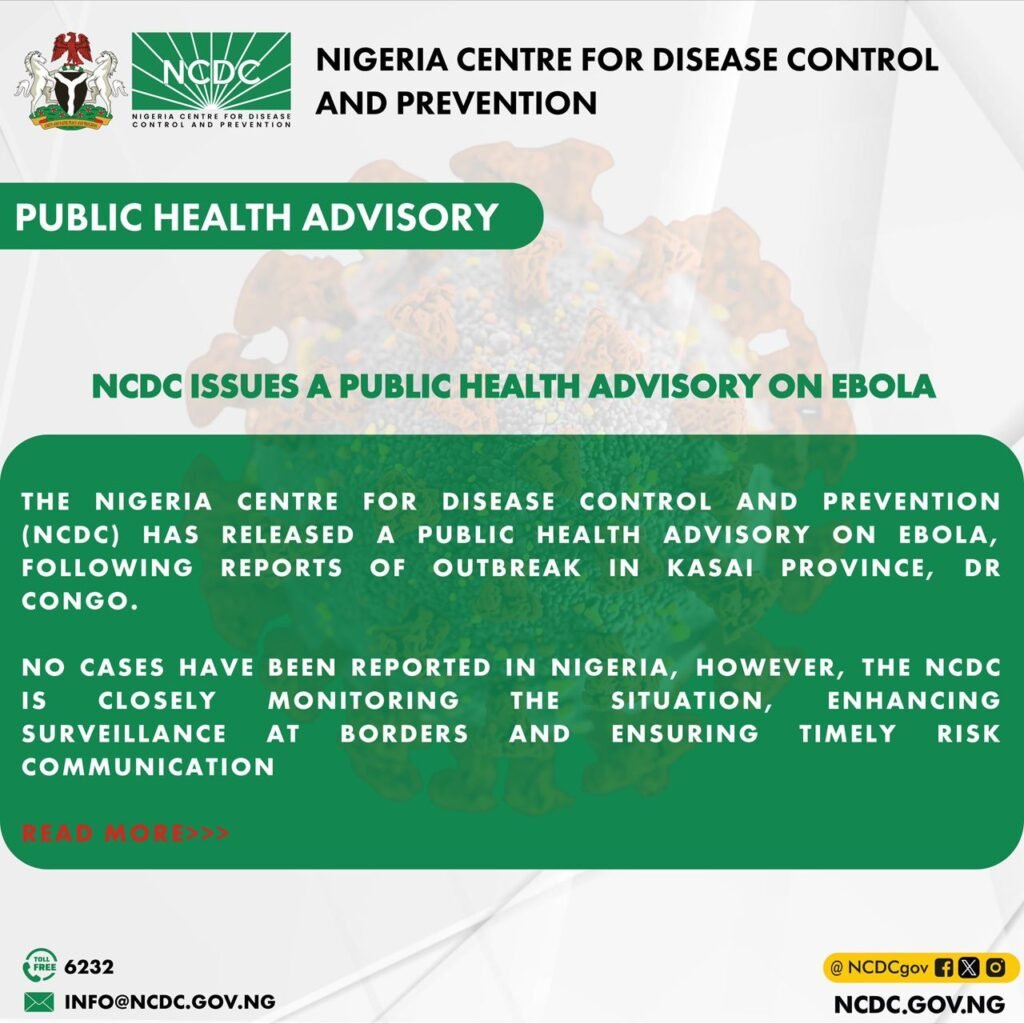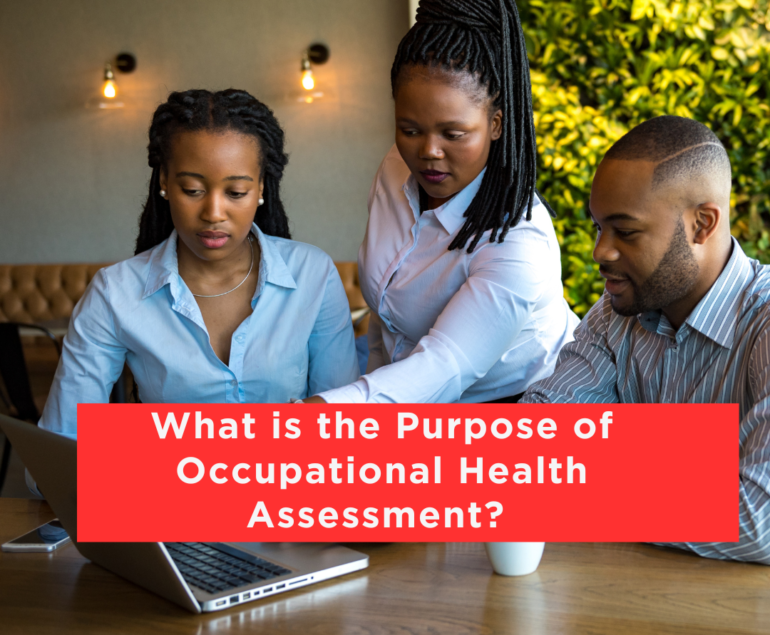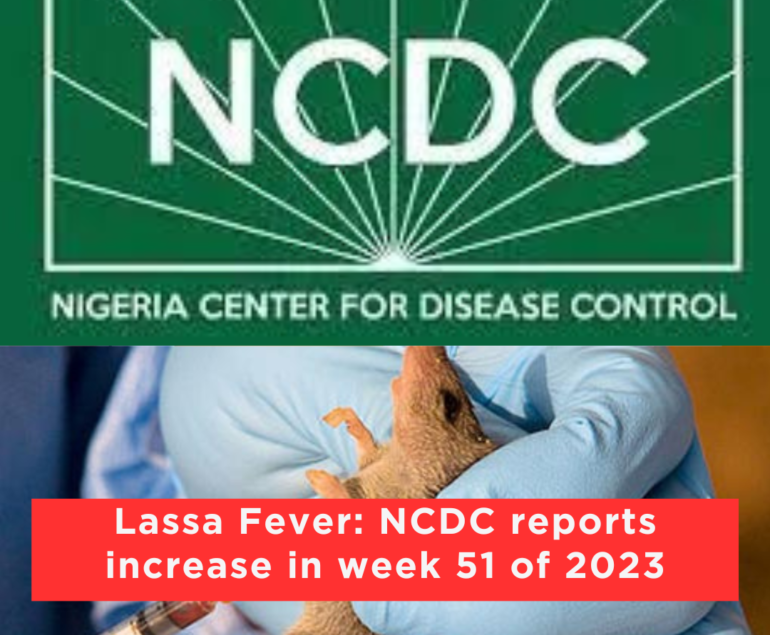Health Alert
On the 6th of September, 2025, the Nigeria Centre for Disease Control and Prevention (NCDC) released a public health advisory following the confirmation of an Ebola Virus Disease (EVD)
outbreak in the Democratic Republic of Congo (DRC).
As of early September, the DRC reported 28 suspected cases and 15 deaths, with the
outbreak confirmed to be caused by the Ebola Zaire strain. While this situation is serious, the
NCDC has reassured Nigerians that there are currently no cases in Nigeria.
Still, prevention starts with awareness, and here’s what you should know.
What is Ebola Virus Disease (EVD)?
Ebola is a severe and often fatal illness that affects humans and other primates.
- Incubation period: 2–21 days
- Fatality rate: Between 25–90%, depending on the strain and response
Early symptoms often look like common illnesses:
- Sudden fever
- Severe weakness
- Muscle pain
- Headache
- Sore throat
As the disease progresses, patients may develop vomiting, diarrhea, jaundice, and in severe cases, uncontrolled bleeding and multi-organ failure.
How Ebola Spreads
The virus spreads through:
- Direct contact with blood or body fluids of infected people
- Handling or eating infected wild animals (bats, monkeys, primates)
- Contact with contaminated surfaces, clothing, or medical equipment
Ebola is not airborne, but it spreads quickly once there’s close contact.

What the NCDC is Doing
The NCDC has activated its preparedness systems to keep Nigeria safe:
- Border surveillance at points of entry
- Infection prevention and control measures in healthcare facilities
- Risk communication and community engagement across the country
- Emergency response systems to detect and respond quickly if needed
What You Can Do to Stay Safe
Everyone has a role to play in prevention. Here are simple but effective steps:
✔Wash your hands regularly with soap and water, or use an alcohol-based sanitizer
✔Avoid close contact with anyone showing symptoms of fever, vomiting, or unexplained
bleeding
✔Do not handle or eat bushmeat (wild animals such as fruit bats and primates)
✔Cook all animal products thoroughly before eating
✔Report suspicious symptoms immediately, especially if you recently traveled to or from
Travel Advisory
The NCDC strongly advises avoiding non-essential travel to countries with confirmed Ebola
cases.
If you’ve traveled from affected areas in the last 21 days and notice symptoms like fever,
headache, sore throat, vomiting, or unexplained bleeding:
- Call 6232 immediately (NCDC toll-free line)
- Stay in place and avoid public transport until responders arrive
- Follow official guidance to prevent further spread
Final Note
While the Ebola outbreak in DRC is concerning, it is important to remember that Nigeria has no
reported cases at this time. Staying informed, practicing good hygiene, and reporting
symptoms early are the best ways to protect yourself and your loved ones.




